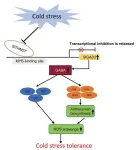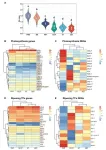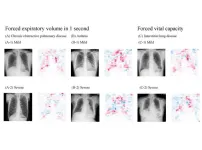(Press-News.org) PULLMAN, Wash. – While not yet on the market, fully autonomous vehicles are promoted as a way to make road travel dramatically safer, but a recent study found that knowing more about them did not improve people’s perception of their risk. They needed to have more trust in them too.
This study adds to the evidence from other research that knowledge alone is not enough to sway people’s attitudes toward complex technology and science, such as gene editing or climate change. In this case, Washington State University researchers found that trust in the autonomous vehicles’ reliability and performance played the strongest role in improving perceptions of the technology’s risk.
That may be critical to whether this technology will ever be realized, said Kathryn Robinson-Tay, lead author of the study published in the Journal of Risk Research.
“Autonomous vehicles are such consumer-oriented products. Whether they are used or not is really dependent on whether people will buy them,” said Robinson-Tay, a doctoral student in WSU’s Murrow College of Communication. “We found there was no significant relationship between people’s knowledge and their risk perceptions of autonomous vehicles—without the mediation of trust.”
While some cars with autonomous features, like Tesla’s adaptive cruise control, are on the roads now, fully driverless vehicles are not yet available. By some estimates, if they do become available, they could improve traffic safety by 90%. But that likely depends on their wide-adoption, and currently, perceptions of their safety are very low. A 2022 Pew Research poll showed 44% of Americans have a negative view of autonomous vehicles.
For this study, Robinson-Tay and her advising professor Wei Peng conducted a representative, cross-sectional survey of 323 adults in the U.S. using Census-based quotas for age, gender and race to ensure a diverse sample. The participants answered questions about their knowledge and perceptions of autonomous vehicles and their risk. While trust emerged as the most influential factor, people’s desire to experience using fully autonomous vehicles also indirectly led to improved perceptions of risk.
The fact that fully autonomous vehicles are not yet available even to try out may be part of the problem, but their very autonomous nature may also hinder their acceptance, said Peng, a WSU communications researcher.
“It’s basic psychology that people want to interact with the things they use. They want to control them through physical touch. With fully autonomous vehicles, you do not need to touch them, so people may feel they are very risky or unsafe,” he said.
News reports about accidents with partially autonomous vehicles has also likely hurt perceptions, the researchers said.
“Accidents happen all the time on the road every day, but people tend to overestimate the risk of something that’s new, or that they're less familiar with,” Peng said.
Regardless, this study’s findings point to the need to build trust with the public if fully autonomous vehicles are to ever take to the roads.
“Proponents should do their best to communicate the benefits, and the risks, of autonomous vehicles in an effort to increase both knowledge and trust,” said Robinson-Tay. “It’s really important to communicate as honestly as possible so people can have a balanced understanding of what they’re exactly getting into with purchasing one.”
END
Trust, more than knowledge, critical for acceptance of fully autonomous vehicles
2024-07-09
ELSE PRESS RELEASES FROM THIS DATE:
Run screaming or slow retreat? New study advances understanding of brain responses to emotionally-charged scenes
2024-07-09
The ability to recognise and respond to emotionally-charged situations is essential to a species’ evolutionary success. A new study published today [July 9th] in Nature Communications advances our understanding of how the brain responds to emotionally charged objects and scenes.
The research, led by Trinity College Dublin neuroscientist Prof. Sonia Bishop and Google researcher Samy Abdel-Ghaffar while he was a PhD student in Prof. Bishop's lab at UC Berkeley, has identified how the brain represents different categories of emotional stimuli in a way that allows for ...
Brain neurotransmitter receptor antagonist found to prevent opioid addiction in mice
2024-07-09
New research led by UCLA Health has found a drug that treats insomnia works to prevent the addictive effects of the morphine opioids in mice while still providing effective pain relief.
The study, published in the journal Nature Mental Health, concluded that suvorexant, which blocks brain receptors for a neurotransmitter called hypocretin, prevents opioid addiction. At high doses in humans, suvorexant induces sleep and is used to treat insomnia. But sleep was not induced, and behavioral alertness was maintained, at the much lower doses effective in preventing ...
Nerve damage from breast cancer treatment can be predicted
2024-07-09
Many women treated for breast cancer using taxanes, a type of cytostatic drug, often experience side effects in the nervous system. Researchers at Linköping University have developed a tool that can predict the risk level for each individual. The tool could help doctors adapt treatment to avoid persistent side effects in those at the greatest risk.
More and more people are becoming cancer survivors. But even if they have survived the disease, an increasing number still suffer from the side effects of cancer treatment. In a recent study from Linköping University, researchers studied the side effects of taxanes, ...
Water stored under artificial turf could make cities cooler and safer to play in
2024-07-09
For those living in cities, space to play sports outside can be a scarcity. Recently, natural grass in parks or public sports courts has often been replaced with more durable artificial turf to allow heavy consecutive use.
There are, however, downsides to this practice, both for people and for cities as a whole. Now, scientists in the Netherlands have set out to change that by integrating a subsurface water storage and capillary irrigation system under artificial turf sports fields.
“Here we show that including a subsurface water storage and capillary ...
How a plant app helps identify the consequences of climate change
2024-07-09
Plants are known to respond to seasonal changes by budding, leafing, and flowering. As climate change stands to shift these so-called phenological stages in the life cycle of plants, access to data about phenological changes – from many different locations and in different plants – can be used to draw conclusions about the actual effects of climate change. However, conducting such analyses require a large amount of data and data collection of this scale would be unthinkable without the help of citizen scientists. “The problem is that the quality of the data suffers when fewer people engage ...
Tomato triumph: genetic key to chill-proof crops unveiled
2024-07-09
In a significant advancement for agricultural biotechnology, researchers have identified a genetic mechanism that enhances the cold tolerance of tomatoes. This breakthrough is pivotal for cultivating crops in cooler climates, ensuring stable yields and bolstering global food security. The study focuses on the SlGAD2 gene, which, when overexpressed, elevates the plant's γ-aminobutyric acid (GABA) levels, boosts antioxidant activities, and stimulates anthocyanin production, collectively improving cold resilience.
Tomatoes play a vital role in global agriculture but are susceptible ...
Scientists exploring potential new treatments for glioblastoma
2024-07-09
A new approach to treating the most malignant type of brain cancer – glioblastoma – has shown strong promise in pre-clinical settings, raising hopes of increasing current average survival rates beyond 18 months.
Targeted alpha therapy (TAT) is emerging as a potential additional treatment for glioblastoma (GB), a disease which has confounded oncologists for decades due to its aggressive nature and strong resistance to existing therapies.
The current standard treatment for GB is surgery, followed by external beam radiotherapy and the chemotherapy drug, temozolomide. However, survival rates of less than 5-10% at five years have prompted researchers to explore ...
Tomato Time capsule: postharvest treatments and their role in ripening dynamics
2024-07-09
Tomato fruit ripening, a process initiated by key gene demethylation, is significantly influenced by postharvest handling practices. These practices, while extending shelf life, can alter ripening dynamics and affect fruit quality. This study explores the impact of various postharvest treatments on the fruit's methylome and transcriptome, shedding light on how physiological and molecular changes interplay to determine the final quality of tomatoes.
Postharvest handling practices, such as refrigeration and modified atmosphere storage, are commonly used to extend the shelf life of tomatoes. However, these methods can negatively impact fruit quality, ...
Innovative, highly accurate AI model can estimate lung function just by using chest x-rays
2024-07-09
If there is one medical exam that everyone in the world has taken, it’s a chest x-ray. Clinicians can use radiographs to tell if someone has tuberculosis, lung cancer, or other diseases, but they can’t use them to tell if the lungs are functioning well.
Until now, that is.
In findings published in The Lancet Digital Health, a research group led by Associate Professor Daiju Ueda and Professor Yukio Miki at Osaka Metropolitan University’s Graduate School of Medicine has developed an artificial intelligence model that can estimate lung function from chest radiographs with high accuracy.
Conventionally, ...
University of Cincinnati, Swing Therapeutics study: Mobile app therapy leads to significant improvement in fibromyalgia management
2024-07-09
New research led by the University of Cincinnati and Swing Therapeutics found that a self-guided smartphone-based behavioral therapy led to significant improvements for patients with fibromyalgia.
The multicenter, randomized controlled trial tested Stanza, a smartphone app that delivers acceptance and commitment therapy (ACT), a type of cognitive behavioral therapy recommended by international clinical guidelines for fibromyalgia management, with the results of the study published July 8 in The Lancet.
Fibromyalgia is a chronic pain condition that affects an estimated 10 million Americans, a majority ...






